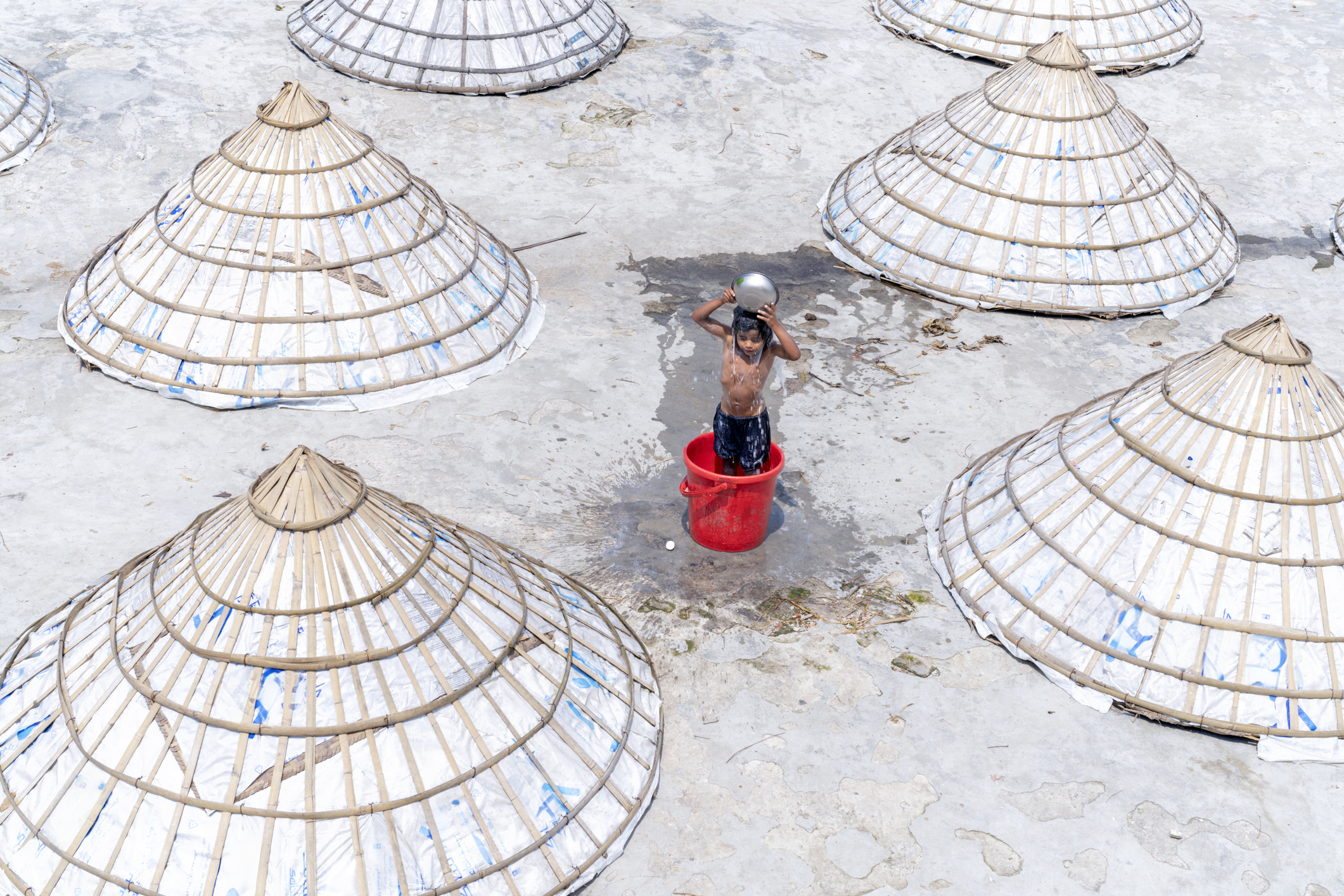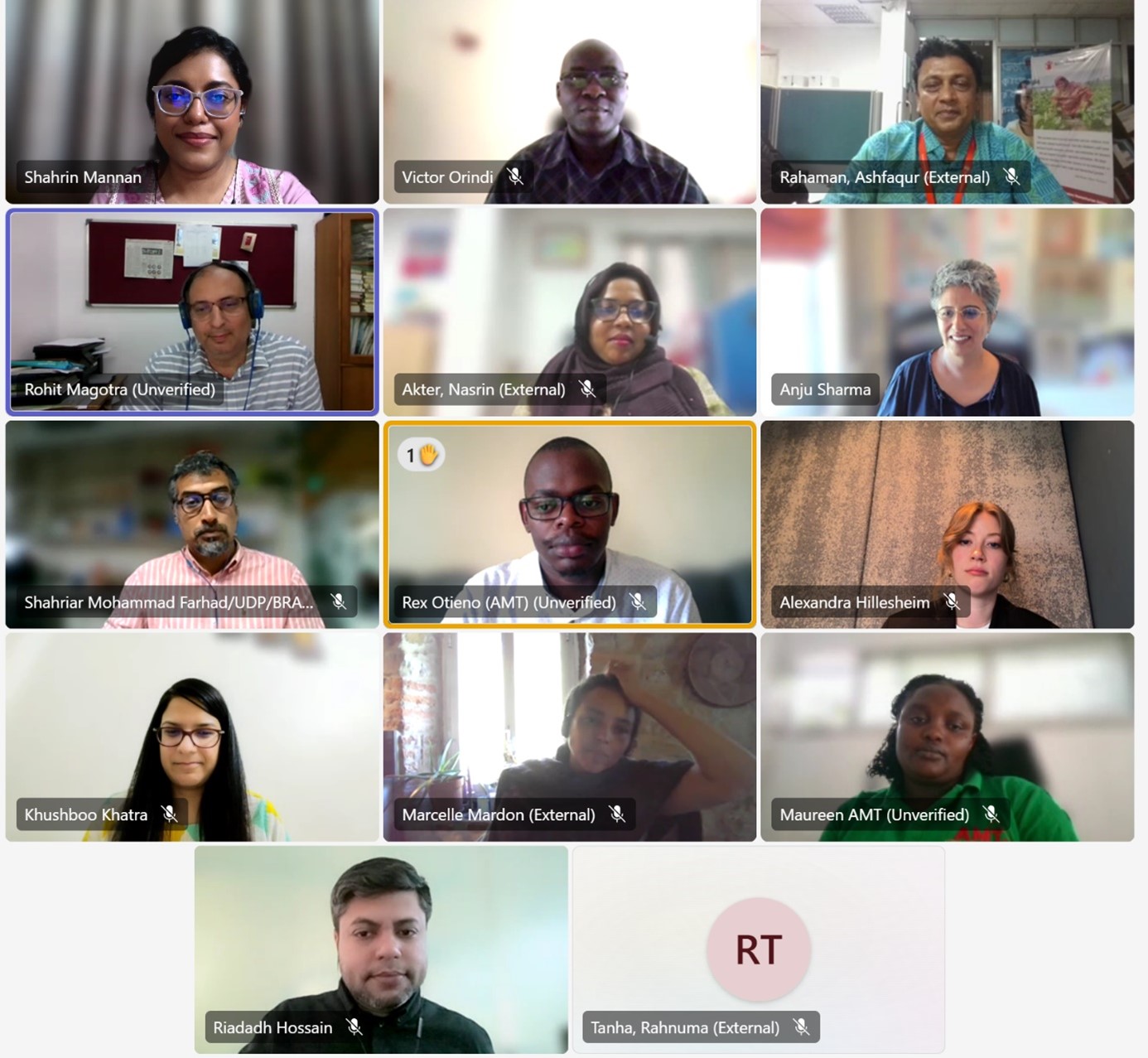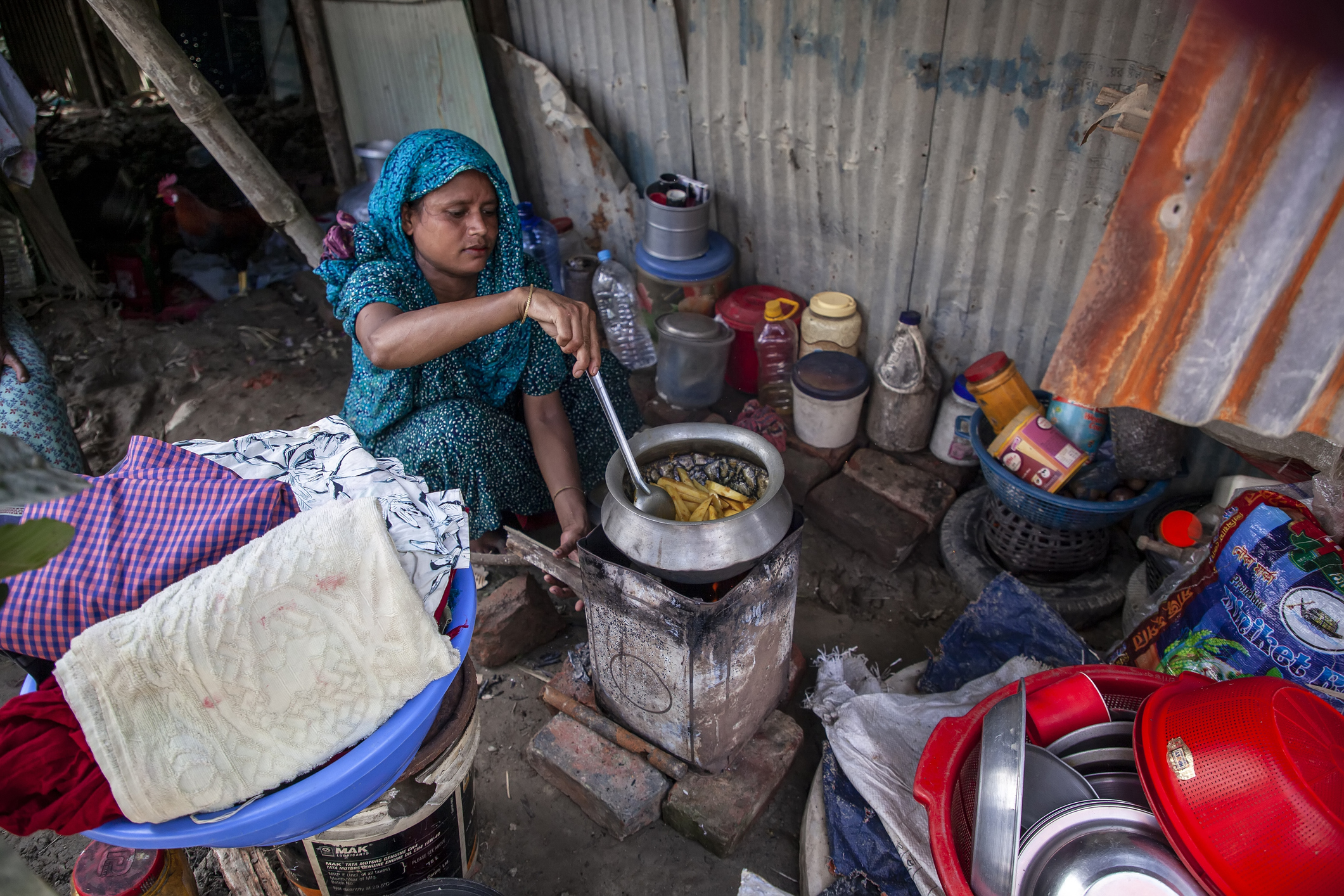
Photo credit: iStock.com/Carlos Duarte
Dhaka, Bangladesh, 30 April 2025 — The Global Center on Adaptation (GCA), in partnership with Integrated Research and Action for Development (IRADe), hosted a virtual peer-to-peer learning session on 30 April 2025. The session focused on integrating Heat Action Plans (HAPs) into People’s Adaptation Plans, which are currently being developed across nine cities in Bangladesh and several African countries by GCA and its partners.
As an escalating yet often underrecognized climate emergency, heat waves are becoming increasingly frequent, intense, and deadly. The summer of 2024 was officially the hottest on record globally. Despite their severe socioeconomic consequences, heat waves continue to receive disproportionately low policy attention compared to other climate hazards. For urban authorities, heat stress has emerged not only as a public health issue but also as a critical threat to productivity, livelihoods, and urban infrastructure.
The urban poor are disproportionately vulnerable to extreme heat due to informal housing made of heat-retaining materials, limited ventilation, and lack of access to cooling. Their employment—often in the informal sector—frequently involves outdoor labor with little to no protection. In Nairobi, for example, temperatures in informal settlements during a 2015 heat wave were recorded to be 3–5°C higher than in surrounding areas.
Opening the session, Anju Sharma, Global Lead for Locally Led Adaptation at GCA, underscored the cascading impacts of heat waves on vulnerable urban populations. She emphasized how IRADe’s experience in developing Heat Action Plans could inform the integration of heat-related indicators and datasets into the People’s Adaptation Planning process.
“Urban planning in the climate era must prioritize inclusive governance,” Sharma stated. “Smart cities are not just about digitization; they demand systemic transformation in how we embed resilience for the most vulnerable.”
She further recommended adapting the enumeration questionnaire used in People’s Adaptation Plans to include data collection on heat-related impacts.

Virtual peer-to-peer learning session on Heat Action Plans with GCA and IRADe
Rohit Magotra, Deputy Director at IRADe, presented a detailed case study of Rajkot, India’s gender-sensitive and spatially disaggregated Heat Action Plan. Developed in partnership with the India Meteorological Department (IMD) and the Rajkot Municipal Corporation (RMC), the plan began with a citywide climate profile and ward-level vulnerability assessment. Key findings included:
Informal sector workers lose over 25% of annual workdays due to heat stress, often falling ill as a result;
Indoor workers—particularly in poorly ventilated homes—face greater heat risks than many outdoor workers;
Women are especially vulnerable, owing to heat exposure from cooking with firewood and fetching water during peak heat hours.
Validated by local communities and municipal authorities, the plan provides a model for alerting at-risk populations and coordinating response mechanisms.
“Heat stress definitions must be localized,” Magotra noted. “Evidence-based, community-led data is essential for raising awareness among decision-makers and catalyzing long-term investments in resilience, including green infrastructure and inclusive urban design.”
Ashfaqur Rahman, Project Coordinator at Save the Children Bangladesh, stressed the importance of aligning health systems with heat early warning systems. He called for the establishment of public health camps, oral rehydration stations, and training for frontline workers to identify heat-related illnesses.
Marcelle Mardon, an urban poverty and informality researcher at the International Institute for Environment and Development (IIED), shared insights from Kenya, Tanzania, and Zimbabwe. Her findings showed how extreme heat is becoming normalized in urban contexts and disproportionately affects women, especially those living in informal housing and working indoors.
Reflecting on gender disparities, Magotra reiterated that traditional assumptions often underestimate women’s vulnerability.
“Our data show that women—particularly those confined to poorly ventilated indoor environments—experience more severe heat exhaustion than men,” he said.

Photo credit: iStock.com/Muhammad Amdad Hossain
Shahriar Mohammed Farhad, Project Coordinator at BRAC, emphasized the intersectional nature of heat as a climate hazard.
“Previously, I considered heat a standalone issue. Now it’s clear that it intersects with salinity and water scarcity—especially in coastal towns like Mongla,” he observed.
He noted that communities often find it difficult to identify targeted heat solutions due to their complex and spatially variable nature, underlining the need for integrated, city-led strategies.
Nasrin Akhter, Manager of the Resilience and Climate Change Program at Save the Children Bangladesh, shared preliminary findings from household surveys in Laksam, Mirsarai, and Feni Municipalities. These insights are informing investments under the Asian Infrastructure Investment Bank’s Bangladesh Smart Cities Development Project.
Akhter highlighted that power outages—common during heat waves—exacerbate women’s vulnerability, as fears around safety and security deter them from leaving their homes in search of cooler environments.
Tucker Landesman, Senior Researcher at IIED, emphasized the need to document both the direct impacts of heat stress and the adaptive capacities of communities and institutions.
“To shape urban planning agendas, we must produce compelling, data-driven narratives that are owned by communities and presented to multisectoral stakeholders,” he stated.
The session concluded with broad consensus among GCA partners on the urgent need to adapt household enumeration tools to capture heat-specific data. IRADe committed to bilateral engagement with GCA teams to integrate Heat Action Plans into ongoing projects across Africa and Asia.